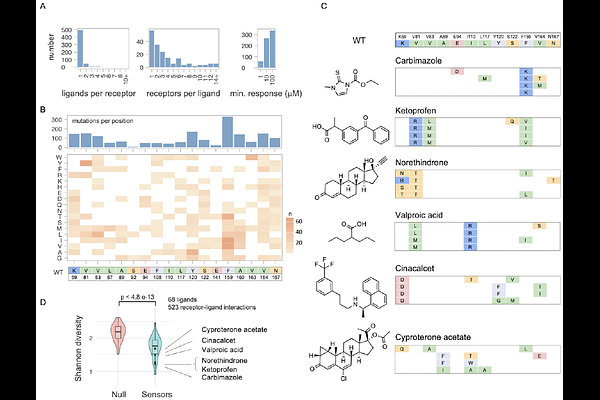Unusually Broad-spectrum small-molecule sensing using a single protein scaffold

Unusually Broad-spectrum small-molecule sensing using a single protein scaffold
Tian, H.; Beltran, J.; George, W.; Lenert-Mondou, C.; Seder, N.; Davis, Z. I.; Swift, S. D.; Whitehead, T. A.; Girke, T.; Wheeldon, I.; Cutler, S. R.
AbstractSmall-molecule sensing in plants is dominated by chemical-induced dimerization modules. In the abscisic acid (ABA) system, allosteric receptors recruit phosphatase effectors and achieve nanomolar in vivo responses from {micro}M receptor-ligand interactions. This sensitivity amplification could enable ABA receptors to serve as generic scaffolds for designing small-molecule sensors. To test this, we screened collections of mutant ABA receptors against 2,726 drugs and other ligands and identified 569 sensors for 6.7 % of these ligands. The mutational patterns indicate strong selection for ligand-specific binding pockets. We used these data to develop a sensor-design pipeline and isolated sensors for multiple plant natural products, 2,4,6-trinitrotoluene (TNT), and forever per- and polyfluoroalkyl substances (PFAS). Thus, the ABA sensor system enables design and isolation of small-molecule sensors with broad chemical scope and antibody-like simplicity.